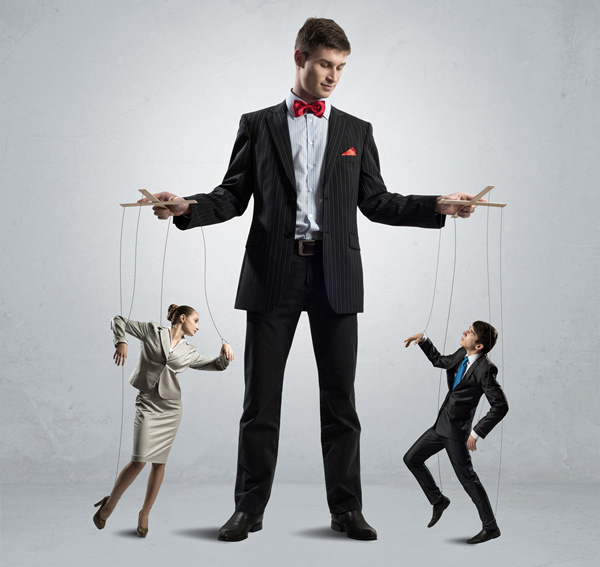We all get excited about putting labels on people, especially when we’re trying to figure out why people have a tendency to hurt our feelings or act in ways that we think might be very different from the rest of us. This is a constant moving target for mental health professionals, armchair psychologists and victims of all kinds.

There is no definitive distinction about psychopaths, sociopaths, or narcissists, which everyone can agree on, so we all do the best we can with what we have. In fact, in the professional sector, they have abandoned these labels altogether in favor of adopting a wide spectrum appropriately labeled Anti-Social Personality Disorder, or ASPD. This seems to be a better way to describe the folks who don’t get along or play well with others.
People tend to get these three labels mixed up and use them interchangeably, and I am often asked what the difference is between them.
There seems to be a bit of confusion about psychopaths, sociopaths, and narcissists as I get asked about the differences between them and how difficult it is to tell them apart. So, I will take a shot at it, advising that this is how it goes in my ministry, it does not apply to anyone else’s practice (because to get a professional group of educated people to agree on anything is difficult, if not impossible, to do).
What makes it confusing is that psychopaths, sociopaths, and narcissists share some common characteristics. For the most part these people are attractive to us as we are drawn to their charm and attracted to their perceived friendliness, while they also maintain an inflated sense of ego. They also seem to possess a lack of empathy, which is counter-cultural (anti-social) and gives them the inability to connect with others in an authentically compassionate manner.
Psychopath
Psychopaths are charming, are daring, tend to take on risks that would normally intimidate others, are bold, fearless and have an extremely high degree of self-confidence. They are intelligent, are able to process large volumes of data and may have achieved high levels of education, and if not, can easily appear as though they are highly educated.
Psychopaths anti-social and have a limited worldview, as it’s hard to imagine anything more important than themselves, fail to possess the ability to maintain an authentic connection to other people, and are more focused on who can serve them or what can make them feel exhilarated. They are also prone to anger-fueled emotional outbursts.
In the employment or public service sectors, they are high achievers, are able to quickly move up the corporate ladder, and when they shine, we admire their devil may care attitude as they demonstrate their ability to tackle impossible challenges and come out on top of the heap (even though the heap may include devastation and dead bodies).
All the while, we admire them and can even be jealous of their ability to divide and conquer without the emotional filters the rest of us have, and they are friendly. We are attracted to their charm, often unaware they are not normal and are only manipulating us, as they play us like their private orchestra.
While they are adept at masquerading as being just like us in every way, this is all an act to control us and influence us in such a way as to be compelled to support them in any way we can, and they will use any methods to appeal to and manipulate our feelings to motivate us to do so.
While using the ability to interact with social media to attract support or lure potential victims, the psychopath will post photos of themselves, but their photos are less likely to be pre-meditated, precisely posed and appear to be more candid. They are not necessarily as obsessed about how they appear in their photos, as long as they’re not too bad. And their online vocabulary is likely to include foul language or words that would be thought of as negative or angry.
On the wrong side of the law, prosecuting attorneys tend to refer to these people as “evil” as they try to unmask them in front of juries who are shocked to find that such a good person could be so different when compared to their public persona.
Sociopath
Like psychopaths, sociopaths have little or no empathy, though are not as ruthless as psychopaths. They can be just as manipulative, but are more considerate of others, but will turn on you in a heartbeat, if it will get them what they want. In this way, they are stealthier and less likely to be identified early on.
They are more spontaneous and fun-loving and find it easy to blend in to a crowd, or belong to a group or movement.
While sociopaths are also quite friendly, their friends are for the most part not long-term (though they could have a very small number of long-term relationships), due to their inability to maintain the reciprocity necessary to continue a friendship for any length of time. They usually make friends with those who can support them in some way, then forget about you when you are no longer needed, or they’ve found some other way to satisfy whatever it was that you were providing them.
They are intelligent but not prone to enduring the long commitments necessary to complete higher levels of education and are likely to find other way to meet their needs.
Sociopaths may be as ruthless as psychopaths but often the underlying motivation is quite different. While a psychopath is motivated by fearless dominance, the sociopath may take unrealistic risks or measures that can negatively affect their peers for their fear of loss, thusly imposing their dominance as an act of perceived self-perseverance.
Sociopaths are less likely to actively engage in social media, due to their anti-social tendencies, though they may use is sporadically, tolerating social media exposure long enough to accomplish a specific goal or task, otherwise, they don’t see much need in it, unless it serves a particular purpose for them.
Carelessness may cause the sociopath to appear before a judge and jury.
A sociopath can be described as a person who remains nervous and is vulnerable to getting irritated very easily. These people are anti-social and often are uneducated, living on the edges of society. They can be called abstainers who are perceived as disturbed people by others. A crime by these people will often be instant and unplanned.
Narcissist
The narcissist is quite different from the psychopath and sociopath, but do share some similar characteristics. There is no doubt the narcissist is extremely selfish and may have the inability to have compassion for anyone else. The narcissist is the center of their universe which revolves around them, so to them, little else really matters.
Narcissists are unable to understand or perceive anyone else’s point of view, staying true to their own ideals, with having little regard for any other individuals. They are unable to be empathetic and are quite adept at manipulating of others.
They are easily categorized as being vain (check out the old Carly Simon song, You’re So Vain. Pretty much sums it up) they can’t help but check themselves out in a mirror or look at their reflection in a shop window, or post a lot of selfies on social media.
Narcissists are attracted to social media to express their tendencies to be an exhibitionistic, to attract the attention of others, and to promote their own agendas, or just to show off. The need the admiration of others to support their grandiose image of themselves, and are found very active on Facebook, amidst a sea of likes, posts, shares, profile updates, and followers. Since their face-to-face connections are superficial as it may be hard to get a word in edgewise, and they are likely to interrupt you when you’re trying to express yourself, they can express themselves continually on Facebook and Twitter without having to tolerate the interruption of others.
Mental health experts agree that a narcissist is easily identifiable by the frequency and type of photos or selfies they post on their Facebook profile. Their photos are less candid, always portray their best side, are often carefully posed or exposed and are likely to feature above average attire and expensive accessories. And on Twitter, they’re more likely to tweet about themselves or from their perspective using first person personal pronouns, such as “I” and “me” or the plural “we” or “us.” Photos are also likely to document their whereabouts, especially prone to posting “look at me,” (without actually using the words) when out and about or out on the (or out of) town.
Seeing themselves as superior to other people, narcissists may be more likely to judge others and see anyone else as lesser people, unworthy of their self-perceived higher social status. While they think their friends and followers are adoring their posts and tweets, in reality their viewers are more likely to be rolling their eyes in silent disapproval of the narcissistic selfish displays, and may even unfollow them at some point. No problem for the narcissist, they are certain there and hundreds (if not millions) of other people waiting in line to get a look at their latest post and these followers are certainly far more deserving.
| Psychopath |
Sociopath |
Narcissist |
| Charismatic |
Confident |
Extremely self-centered |
| Confident |
Friendly and polite |
Seek admiration |
| Fearless risk takers |
Can blend in |
Less likely to care about others |
| Intelligent |
Less highly educated |
Prone to obssess in social media |
| Masters of disguise |
More likely to break the law |
Post a lot of updates and selfies |
| Dangerous |
(less likely to get caught) |
Most likely not dangerous |
You might be interested in attending the Victims of Psychopaths Event






